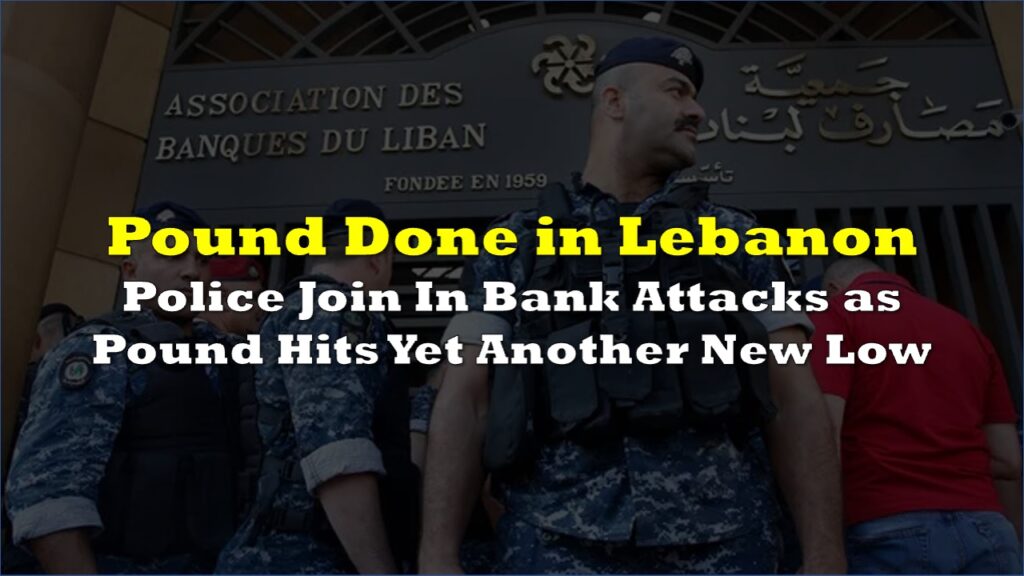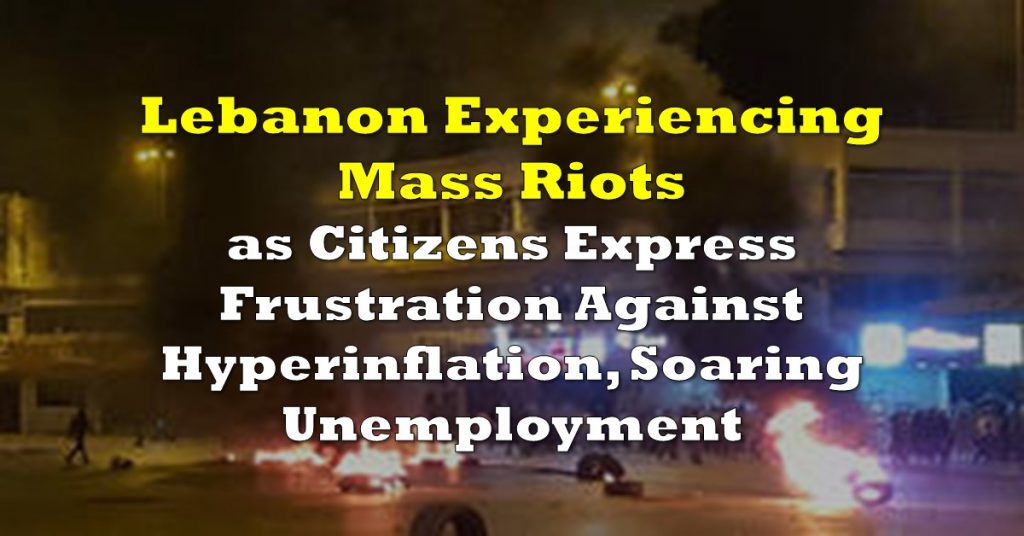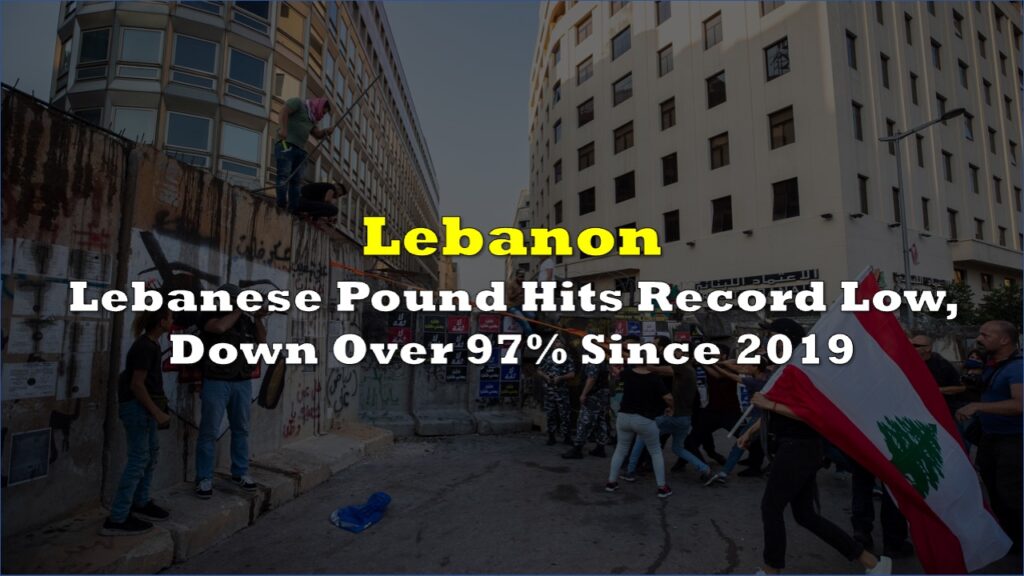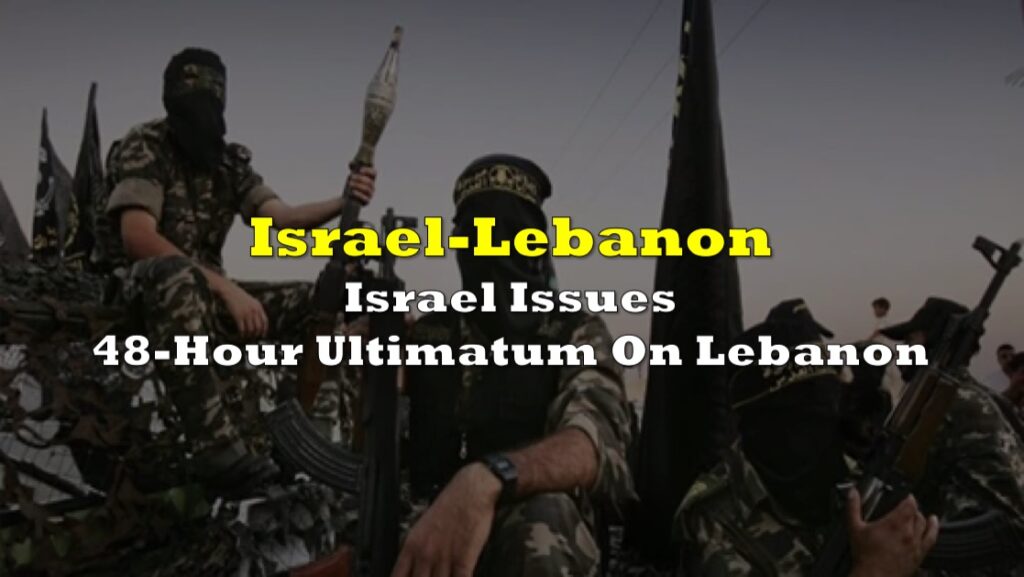As the Lebanese pound continues its swift descent into the void, several dozen protesters attacked banks in the capital city of Beirut on Thursday, setting some of them on fire, as they demonstrated against the banks’ informal cash withdrawal limits.
According to Depositors Outcry, a lobby representing people with money stuck in the banks, protesters attacked at least six banks and blocked the roads as the country’s currency hit a new record low, losing 98% of its value since 2019 on Thursday. It traded at 80,000 pounds to a dollar on Thursday, plummeting further from 70,000 just two days earlier.
#BREAKING: Protesters have set tires on fire at the entrances to several banks in #Beirut, #Lebanon https://t.co/mQYDTntBey pic.twitter.com/Cembc3DpLS
— Arab News (@arabnews) February 16, 2023
The country’s banks have put unofficial limits on the Lebanese pound and the US Dollars that people can withdraw since the crisis of 2019 when the country’s economy began to rapidly collapse. These cash withdrawal limits were never formalized by law but are still imposed, pushing depositors to fight for access to their money — their savings — either through lawsuits or by force, as in through bank robberies and sit-ins just to get access to their own money to pay for necessities like food, utilities, and healthcare.
The Association of Banks in Lebanon decided to close all branches as the currency fell to a new record low, further angering depositors.
“What are you Lebanese people waiting for, to go down and take your rights from this mafia of thieves and criminals that’s ruling? Where are the human rights? There is no electricity, no water, nothing at all in this country. Don’t they feel us while they’re sitting in their palaces? They have no feelings for the people. They see us as sheep. We won’t stay silent about our life’s worth,” protester Rami Ghandour said.
According to Arab News, protesters targeted five banks in the Badaro neighborhood of Beirut: Bank Audi, Fransabank, Credit Bank, Byblos Bank, Bank of Beirut, and BBAC. They also attempted to storm the residence of Association of Banks head Salim Sfeir, after staging a sit-in in front of the building in Sin El Fil in the eastern suburbs of the capital city.
Firefighters have since put out the blazes at the banks, and the Lebanese army has been able to reopen the blocked nearby roads.
#BREAKING: Lebanese Minister of Economy says government to allow the pricing of goods in Dollars except for bread https://t.co/mQYDTntBey pic.twitter.com/dTpsFGPiXQ
— Arab News (@arabnews) February 16, 2023
Not everyone thinks the protests were a result of angry depositors wanting their money back.
Economist Violette Balaa described them as a “fabricated disturbance and the result of the political dispute.”
“Those who burned the banks today are not all depositors. Depositors do not know how to burn tires or where to go. It is an attack on the Lebanese economy and confidence in it,” she added. “What is happening has political objectives. Some people are benefiting from what is happening, particularly dollar speculators, although the state has arrested 40 illegal money changers.”
At a press conference on Thursday, caretaker economy minister Amin Salam said that a decision has been taken to “allow the pricing of goods in supermarkets in dollars while adopting the black market exchange rate because it is not possible to rely on the exchange rate of a certain platform.”
Information for this story was found via Reuters, Yahoo! News, Arab News, and the sources mentioned. The author has no securities or affiliations related to this organization. Not a recommendation to buy or sell. Always do additional research and consult a professional before purchasing a security. The author holds no licenses.









